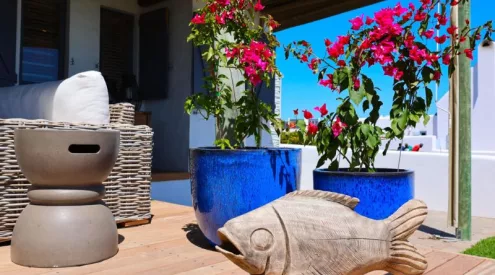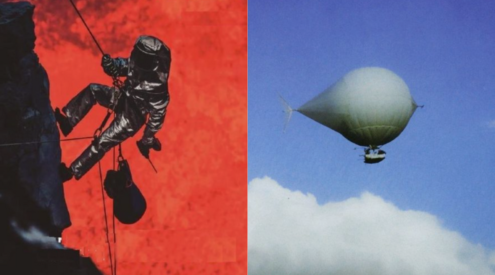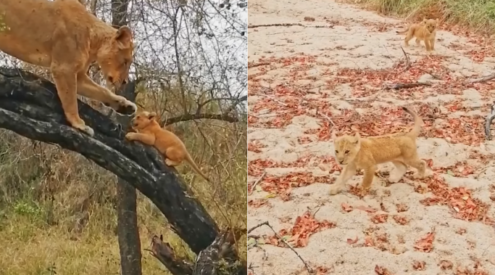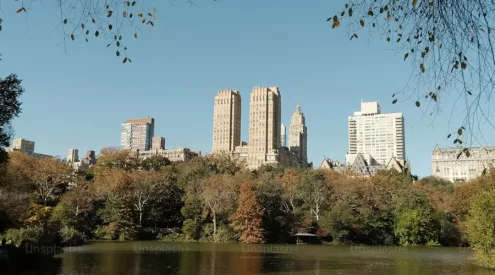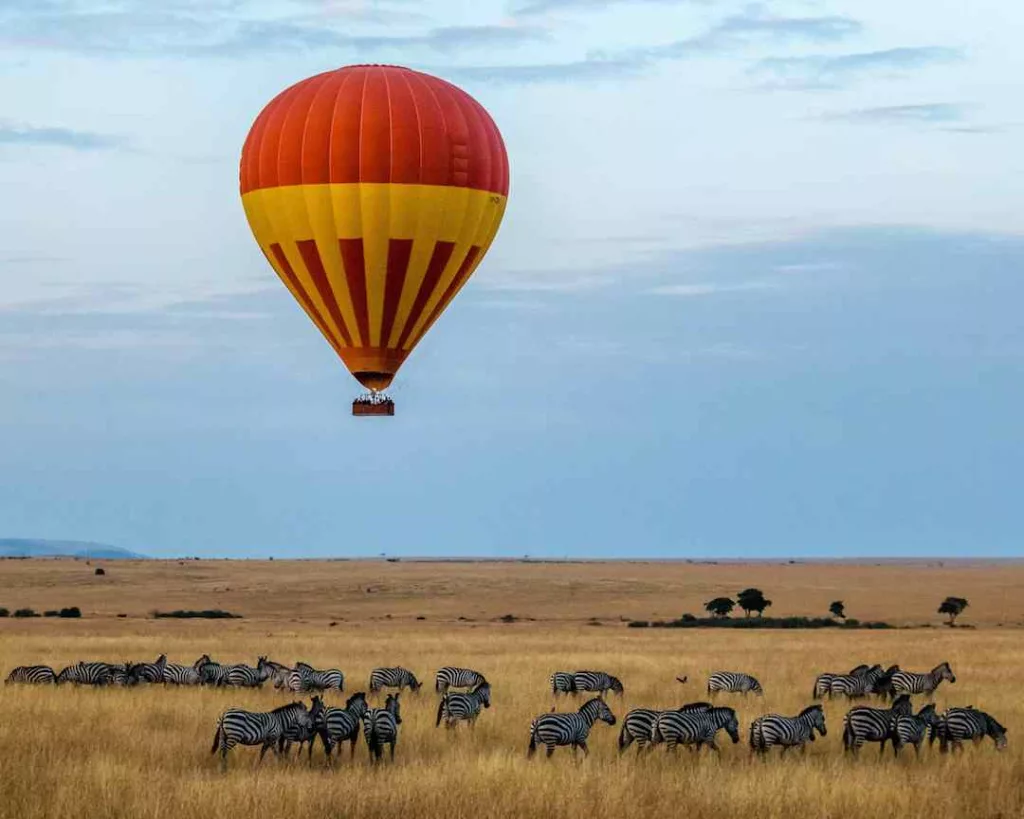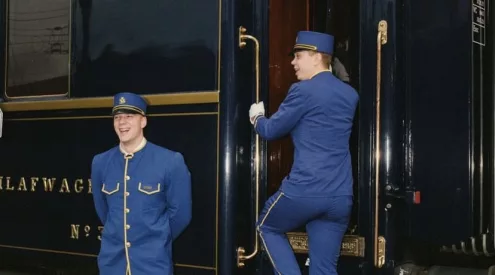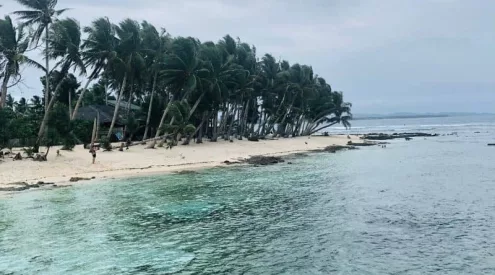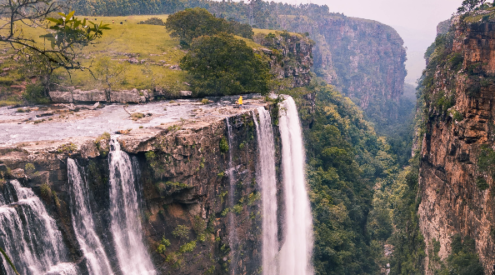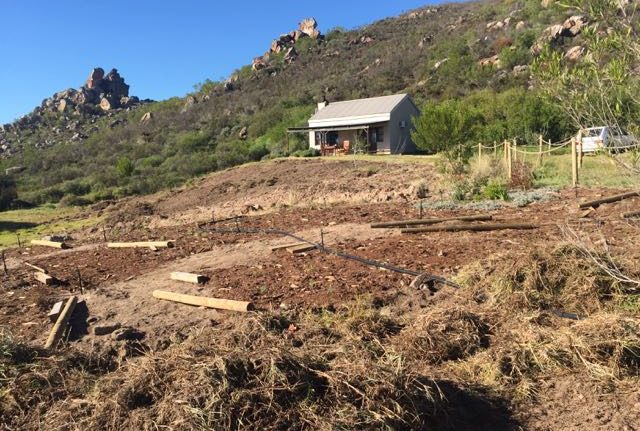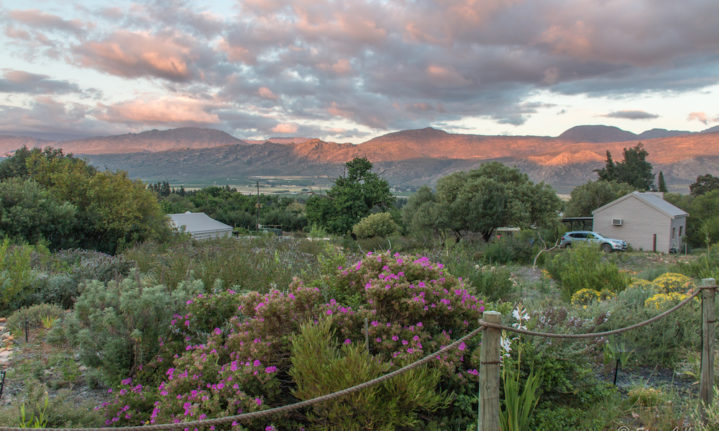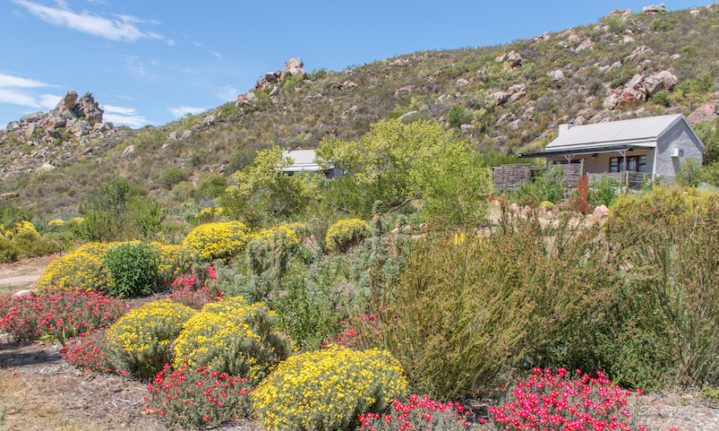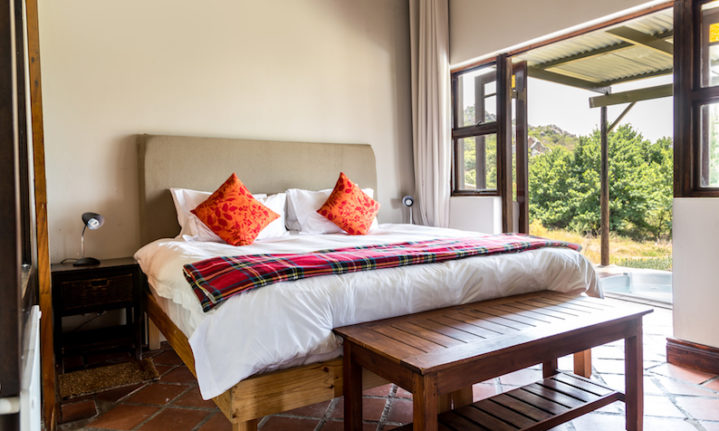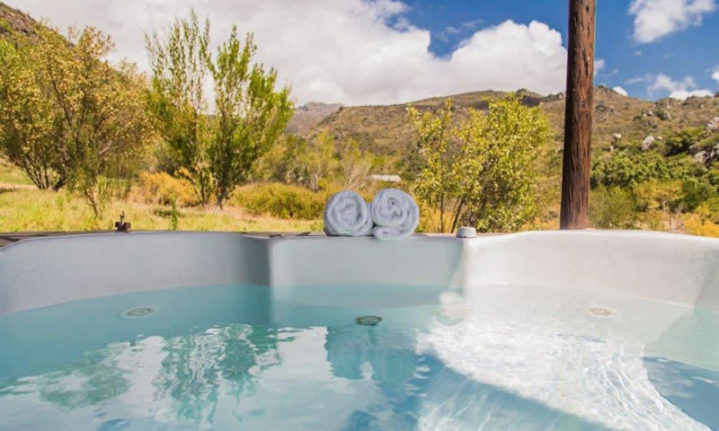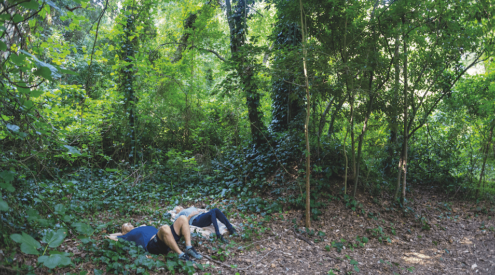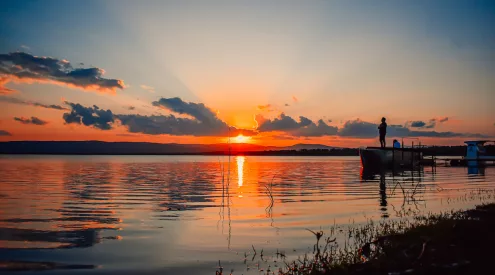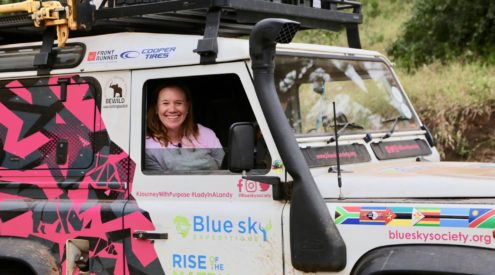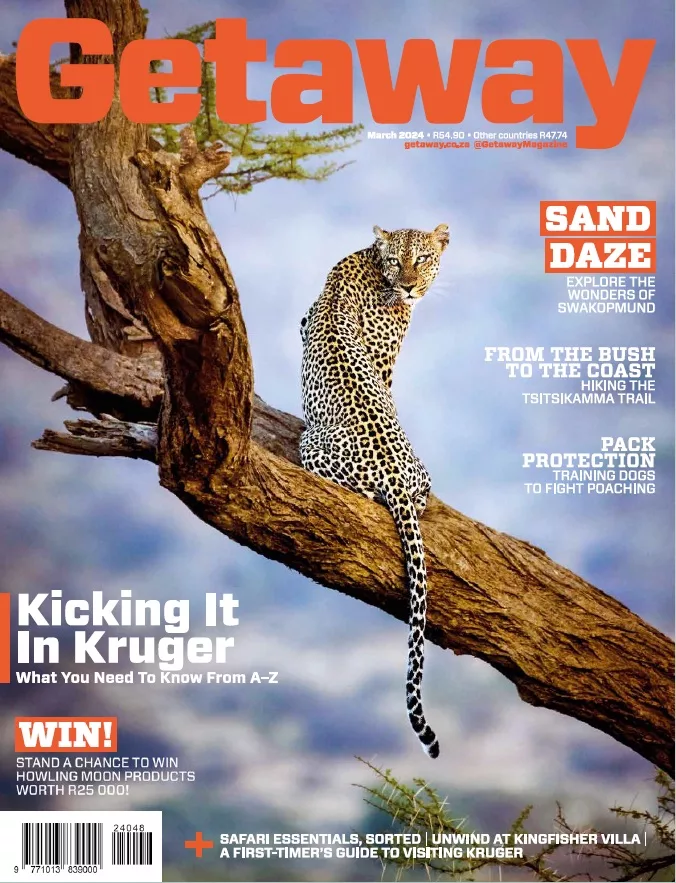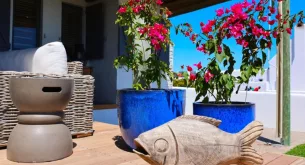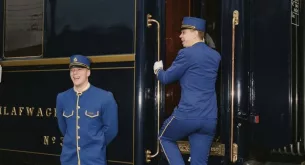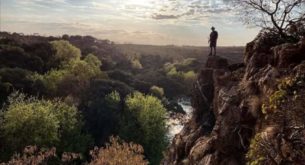At Cederkloof botanical retreat, visitors will find a place where the fynbos grows on land rewilded, and guests can stay in comfort, participate in workshops and uncover the array of benefits from restoring a place to its natural habitat.

Cederkloof botanical retreat tells a story that mimics the history between us and nature. It is a property that has gone through transformations that disturbed the natural equilibrium, and is now trying to bring this back. Yvette Anderson, the general manager pioneering this project, comments that the story of Cederkloof is the story of South Africa and the world: “It speaks of excess, destruction, hope and redemption“.
The arable land was first destroyed by wheat farming and then 100ha of topsoil was removed to make way for a golf course. This planned golf course and the damaged soil left little promise for the return of indigenous flora.
The land was eventually sold, and the new owners had a vision to restore the land to life and productivity by way of sound business and biological practices. The work on the garden began in 2015, with plans on extending it all the way up the kloof. To increase and restore the fertility of the soil, rooibos was planted in 2017 as an indigenous and nitrogen-fixing crop. Fast forward to the present, and Cederkloof stands out as an example of how we can live symbiotically with nature.
This transformation has also involved a changed perception, where Yvette talks about how our values towards private, manicured gardens have changed with the transformed relationship to nature in the last decade, and how landscaping reverberated with the zeitgeist at the time:
“For instance, in the time of kingly palaces and cathedral landscapes, the axial arrangement always awarded power to the state or the church. Gardens were highly ornate, signifying our control over our environment…In contrast, I think those ideas have evolved, certainly in pockets of society, that rewilding is needed. We find great value in wild untamed places, people want to re-wild themselves and re-wild the flat monocultures that threaten our biodiversity and the functioning of ecosystems.”
The garden maintenance still consists of pulling out grass, a reminder of the golf course that existed before.

Cederkloof when it still had the grass planted.

The Process of removing the grass was an arduous task.

Rethinking the land
The farm would like to tell a comprehensive story that is all-encompassing, pointing to a future of functional communities and harmony. Yvette has started a project called CommuniTEA, where she is working with independent shareholders for the distribution of medicinal teas and herbs into local communities. This project will also follow a strict social and environmental code from harvest to packaging. She is currently testing this concept with a group of people in Citrusdal – her personal initiative through a company called Rethinktheland.
After removing the alien flora of the golf course and making use of the indigenous fynbos Yvette talks about how the women on the farm remembered the plants natural affinity:
“…when we all sit around the tables and clean herbs the stories and memories flow free, the guys join in, but mostly with stories of how the plants protect them from evil spirits. The platform needed to be created where honour was given to the old ways so that people can confidently remember without ridicule. People rediscovered themselves by remembering their practices and they love physically working with plants.”

After a few years, The Fynbos is already displaying a changed landscape.

And that platform is coming to fruition, with Cederkloof being a space where nature’s ability is a core aspect of their business. Today it operates as a botanical retreat, proving to be more successful than the golf course that was so seemingly out of place amongst the fynbos outcrops.
Wildlife returning
With the rehabilitation of fynbos, birds have returned to the farm. beyond the garden a troop of baboons roam the mountains and a breeding pair of Verreaux’s eagles soar above. At night, aardvarks, porcupines, genet’s and Cape leopard frequent the nearby cliffs. Beyond their own walls, Cederkloof is committed to extending its wilderness stewardship to other places in the valley. They support restorative projects, advise on species selection and provide workshops. Yvette mentions that:
“We find great value in wild untamed places, people want to re-wild themselves and re-wild the flat monocultures that threaten our biodiversity and the functioning of ecosystems.”
Yvette plans to continue with rehabilitation projects to find green economic feedback into the culture that surrounds the project. She wants to continue to educate farmers on the value of indigenous plants and how to unlock their value, and also on the methods of restoring arid lands into ecologically and culturally productive spaces. She says she is not sure how that will take place but has a few great ideas.
Getting there
It is fairly easy getting to the Cederkloof retreat. When coming from Cape Town, simply take the N7 north towards Citrusdal. Drive for about 2 hours and take the turnoff from the N7 to the town of Citrusdal and before the town, take the Citrusdal Baths and keep your eyes out for the signs that point to the retreat on the right.
Accommodation

The retreat has 10 well-equipped self-catering cottages with six single units that sleep two people, and four double units that sleep four. Each unit has double doors that open onto the terrace as well as your private Jacuzzi. There is also the option of a luxury tented camp. All accommodation has a minimum of two nights stay.

Single Unit – Sleeps 2
Weekends: R1800 p/n
Double Unit – Sleeps 4
Weekends: R2600 p/n
Bell Tent – Sleeps 2
Weekends: R800 p/n
To make a booking on a weekday, it is advised to contact them for a quote. To make a booking online, simply visit their website here to book directly or email at: [email protected] or call 022 3000 118
Those who are interested in the workshops offered should contact Yvette directly at +27 76 966 0046 and if you are interested in her Rethinktheland company and its projects can find out more here.
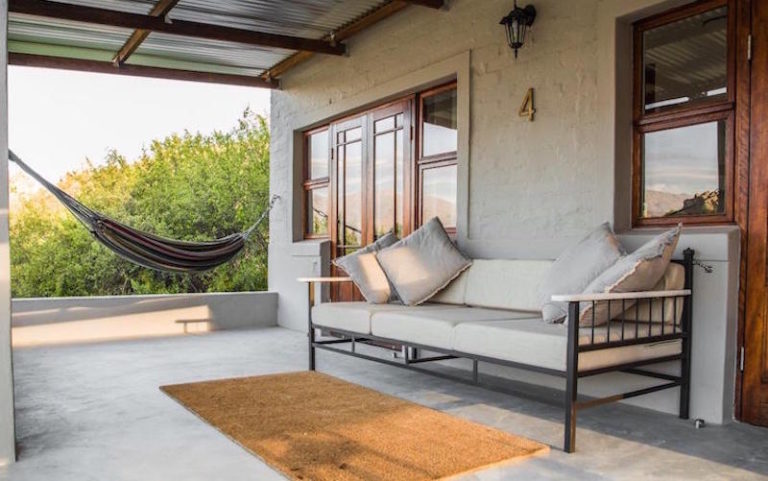
Photos: Yvette Anderson

